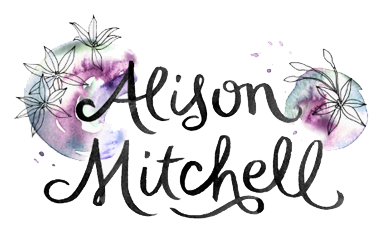Private Health Care Rebates due to be axed for Natural Therapies
If you get a rebate for your Naturopathic consultations, these are going to be stopped as of April 2019.
Despite an abundance of protest by consumers who still want their health funds to provide them with these rebates (the Your Health Your Choice petition received over 100 000 signatures, and there have been many other petitions in addition to this such as the recent one by NHAA) these cuts appear to be going full steam ahead.
Considering 70% of Australians use natural therapies, it seems like there’s something amiss…
This change isn’t just affecting Naturopathy: rebates are also being removed for Western Herbal Medicine, Yoga, Pilates and more.
From 1 April 2019 the following natural therapies will be excluded from the definition of private health insurance general treatment and will no longer receive the private health insurance rebate as part of a general treatment policy: Alexander technique, aromatherapy, Bowen therapy, Buteyko, Feldenkrais,Western herbalism, homeopathy, iridology, kinesiology, naturopathy, Pilates, reflexology, Rolfing, shiatsu, tai chi, and yoga.
Department of Health, Private health insurance reforms
For some patients this change won’t affect them too greatly financially, as many health fund rebates average out at $15 per consult.
Many people will still choose to seek naturopathic care and will still continue to go to their yoga and pilates classes, in fact one national survey found that people without private health care insurance are 1.7x more likely to use complementary medicine.

So why does this make me so cranky?
What erks me is the lack of respect this shows to our profession, but also the ridiculousness of their justification (which I go into later in this post).
There are a large number of patients who choose naturopaths as their primary care physician, or who work with naturopaths and GPs together as a close knit team. For people with chronic health issues this is a vital part of maintaining their wellbeing, and this decision implies that we are not an important part of the health care teams as we actually are.
This also poses a risk to the public as the awareness of who is properly trained as a naturopath is now less obvious.
What can you do about it?
- Write a letter to the Minister of Health and your MP. Emails will probably get deleted so send a physical letter!
- Talk to your private health care. Ask for a discount, change your cover, or at the very least voice your concerns.
There are some many reasons why I consider this decision to be a bad move.
Their justification is B.S.
It’s based on the claim that natural therapies lack substantial evidence. But wait… there’s heaps of evidence! Well, that just depends on what you call evidence. For something like Naturopathy which is an umbrella term incorporating many different modalities such as nutrition, herbal medicine, massage and more, it is incredibly difficult to study Naturopathic services as a generalised service. Different Naturopaths place a stronger focus on different modalities. And let’s not forget that research costs a stack of money to do, and is usually funded by big companies or sometimes backed by the government. So who is going to fund this research when there’s no specific product to sell at the end of it?
There actually was research done on general naturopathic practice, and it found positive effects. “There was evidence to suggest that whole-system naturopathic practice is effective in improving patient health for a range of chronic health conditions, including anxiety, multiple sclerosis, cardiovascular disease and musculoskeletal conditions”. (read more about this in the letter from NHAA below). But the positive research was dismissed due to the ‘unregulated nature of the work force’. But by removing rebates, it’s just making the profession more unregulated. Ugh.

If you look at the research done on our modalities in isolation then there’s piles of research. If you’ve seen me as a patient, chances are I’ve spoken to you about some of this research in regard to your treatment. Or you can have a look at some of my other blog posts where I occasionally share some of this with you.
But frustratingly there was quite a lot of research papers excluded in this decision making process. The review only looked at papers published in English between 2010-2015 and only used the term ‘naturopathic practice’ rather than assessing any of the remedies in isolation (to get an idea of the quantity of research available, head over to PubMed and search for things like Turmeric, Nigella, Folate, Magnesium, Mediterranean diet, omega-3 fatty acids, n-acetyl-cysteine, to name just some of the most studied remedies).
To make such a big call on a flawed review with shoddy search parameters, and to then not listen to the hundreds of thousands of people saying “Oi! Look properly!” smacks of something dodgy.
As fair a cost saving mechanism, I call B.S. again.
Natural therapy rebates are a drop in the ocean as far as the benefits paid.
“Australia’s health funds paid $4.9 billion in benefits for General Treatment [extras cover] in 2015–16 including $2.5 billion for dental, $800 million for optical and $400 million for physiotherapy. Benefits paid for natural therapies comprise less than one percent of all benefits paid by health funds.”
Dr Rachel David, CEO of Private Healthcare Australia
And given that Naturopathy has a strong focus on preventative health and wellness, if there was a greater use of our services one could argue that in the long run the government would save money.
Conditions such as cardiovascular disease, obesity, diabetes, kidney disease and chronic pain are very expensive conditions which cost the government big bucks each year – we’re talking in the billions.
On top of this, if Naturopathic practitioners were better utilised we could work together with conventional therapist to reduce the pressure on GPs, such as by providing alternative to antibiotics in the case of colds and flus and providing support to patients with chronic conditions.
How will you be able to tell if someone is dodgy or not?
In order to get the health fund rebates we have to meet a minimum criteria of qualifications from quality educational bodies, maintain professional indemnity insurance, and keep up to date with research by fulfilling a certain amount of CPE points each year.
Seeing as anyone can call themselves a Naturopath, this was a great screening tool for patients to know who they were choosing to see was the real deal.
But that’s gone now, and this potentially poses a risk to the public. There isn’t really an obvious way for people to find out if their Naturopath got their “qualifications” from a 4 year university degree like myself and fellow members of NHAA and ATMS, or whether they got it from a deal of the day website for $17 and managed to smash it out in half an hour.
So while people previously would know that as long as they were registered with their private health funds they were okay, the only option I can suggest to find proper Naturopaths is by looking on the register of NHAA and ATMS and ANTA.
This may lead to less research.
Which perpetuates the whole cycle of ‘There’s not enough research -> so let’s not do any research into it -> there’s not enough research…’
Already there are cuts being done to research.
During an ABC Life Matters interview on 6 February 2019,
Gill Stannard
Jon Wardle, Associate Professor in Public Health at UTS sites a number of studies examining the efficacy of complementary medicine have had their funding rescinded due to the wider reaching legislation associated with the review. These therapies can no longer be carried out in a hospital setting, even when replicating previously successful in-hospital research, such as a successful international study into yoga for lower back pain. As a research fellow with the National Health and Medical Research Council (NHMRC), this has impacted his own research funding.
So is it worth it to have extras?
For many people it’s really worth considering ditching your extras cover. Considering that the health insurance premiums have increased dramatically each year, far outreaching the increases in services costs, most consumers are not getting their moneys worth.
Getting rid of your extras cover and sticking to hospital and ambulance cover would mean the medicare surcharge would not come into play.
Health funds spend a lot of money advertising their extras cover – because it’s the big bread winner for them. If you really did come out on top at the end, this wouldn’t be a lucrative business for them.
Do the maths: work out how much you get back each year vs. how much you spend on your extras cover. Chances are if you only get a couple of treatments per year from each modality, it isn’t worth it. Take that money and put it in a high interest savings account, pay out of pocket for your treatments, and there’s a good chance you’ll be better off in the long run.
Take care of your health.
You might like to read some of my other relevant posts:
My thoughts on the recent wellness scandals

The Naturopaths and Herbalists Association of Australia letter to the Federal Health Minister
Published on Tuesday, 06 November 2018
The Honourable Greg Hunt, MP (the federal Minister for Health)’s recent decision has effectively banned Private Health Insurers (PHIs) from covering Naturopathy and Western Herbal Medicine, despite a high level of evidence of their efficacy and valued use in chronic conditions. The Naturopaths and Herbalists Association of Australia (NHAA) is opposed to this decision. In our opinion, these new rules do not help patients, save virtually no money, create new risks to the public, deny care that is effective, and potentially encourage care that is ineffective and/or unsafe.
Most of the issues with the new rules stem from their prohibitive nature, so, whilst the purpose was to remove public subsidies for these services, the new rules actually prohibit their provision as part of a private health insurance plan under any circumstances. What has not been made clear in the new rules is why removal of public subsidies from these therapies requires that their supply be prohibited in complying policies.
Removal of Naturopathy and Western Herbal Medicine from private health insurance refundable status is of particular concern to the NHAA, primarily due to the anticipated impact on public safety. In the absence of statutory regulation (such as under AHPRA), Naturopathy and Western Herbal Medicine currently operate in a self-regulated environment. A key safety lever in the current self-regulatory model, is the need for practitioners to join a professional association to access PHI provider numbers in order to allow patients to claim private insurer rebates on the services rendered. In the face of inaction on the part of various governments to regulate Naturopathy and Western Herbal Medicine, the private health insurers have assumed the pseudo-regulatory role in this area by requiring practitioners be members of a professional association, to maintain current first aid training, and meet continued professional development requirements, which has acted as a steadying influence on the profession. This allows professional associations such as the NHAA to enforce standards of public safety. For instance: ‘registered’ practitioner listings, codes of conduct, education standards and educational accreditation, monitoring of compliance with first aid certification, overseeing member professional development and continuing education activities, and ensuring practicing members hold appropriate levels of professional indemnity and public liability insurance.
Removal from private health insurance refundable status in relation to naturopaths (and western herbal medicine practitioners) removes the ‘pseudo-regulatory’ function currently operating in the public interest and is likely to facilitate underqualified and non-compliant persons to practice Naturopathy or Western Herbal Medicine with no professional checks or balances. There are already high-profile cases of misconduct by people claiming to be Naturopaths while not meeting even the most basic requirements set by some of the other representative bodies. Had there been statutory registration, cases like this would have been clearly described in the press as ‘fake Naturopaths’ in similar terms to those used for other fake medical practitioners. The NHAA is concerned the regulatory vacuum resulting from removal of PHI for Naturopaths (and western herbal medicine practitioners) will enable people with little or no qualifications in the discipline to misrepresent themselves and anticipate more harm to the community and to the standing of the profession.
The Minister purports to use the “Review of the Australian Government Rebate on Private Health Insurance for Natural Therapies”[1] as the justification for preventing PHI’s from providing rebates for Naturopathy and Western Herbal Medicine. The limitations of that review (eg., restricted to systematic reviews from 2008 onwards, missing an important review from 2007), as well as the large number of randomised controlled trials undertaken in the years since that review, make that reliance questionable. Not only was the report limited to published systematic reviews, but evidence has grown considerably since then: e.g. in 2013 there were six randomised controlled trials (RCT) comprising a total 692 patients for “whole practice” Naturopathy, however, there are now 31 RCTs comprising a total 9798 patients. Even then the review found that there was evidence to suggest that whole-system naturopathic practice is effective in improving patient health for a range of chronic health conditions, including anxiety, multiple sclerosis, cardiovascular disease and musculoskeletal conditions. Of the studies which were included their positive outcomes were dismissed as not relevant to the Australian context due to the unregulated nature of the workforce.
For western herbal medicine the review noted that while there is a large body of research on the effects of individual herbal agents and remedies, the study of the real-life practice and outcomes of western herbal medicine as a health service was separate to this research and as there were no studies of the real-life practice and outcomes of individualised western herbal medicine as a health practice they could not reach any conclusions as to its effectiveness or potential harms.
Had Naturopathy already been registered as a profession then it would not have been subject to the review in the first place. Naturopathy and Western Herbal Medicine have previously been assessed against the requirements for registration and found to meet the requirements.[2] It is the NHAA’s position that the lack of statutory regulation of naturopaths and western herbal medicine practitioners under the National Scheme (through AHPRA, as the agency that supports the National Boards to implement the National Scheme) is the key difference, to naturopaths and western herbal medicine practitioners’ adverse treatment under the policy change (that removes the government rebate to private health insurers in relation to a broad range of natural therapies). Registration under the National Scheme would address this issue and the NHAA has been, and will continue to, work to facilitate this.
In the interim, the NHAA will be working to have Naturopathy and Western Herbal Medicine removed from the “banned list”. This is an administrative process, but it requires understanding of the issues by the Health Minister so that it becomes easier to make the change rather than to leave it as it is. This requires a grass roots campaign with Naturopaths and their patients contacting their local member and the health minister to bring this to their attention and give them a reason to implement the change required. The message needs to be succinct and to the point. The NHAA will be keeping members updated with advice on practical action they can take to assist with the amendment process of the new PHI rules in the best interest of members and the public alike.
[1] Baggoley, C., (2015). “Review of the Australian Government Rebate on Natural Therapies for Private Health Insurance.” Australian Government Department of Health, Canberra.
[2] Lin, V., et al. (2005). “The practice and regulatory requirements of Naturopathy and Western Herbal Medicine ” Melbourne: Department of Human Services.










